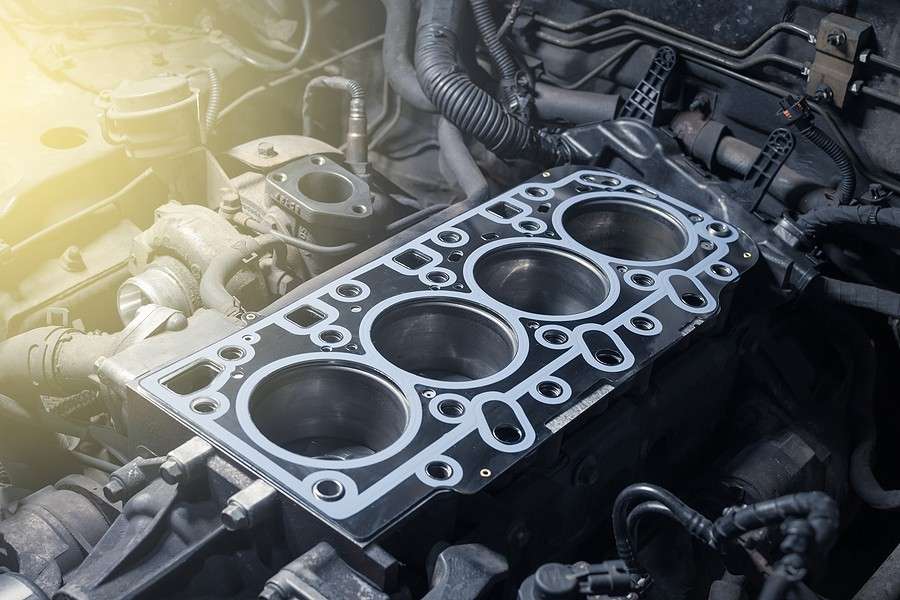Engine knocking, also known as pinging or detonation, is a knocking or pinging noise that can occur when an engine is running. It is caused by the air/fuel mixture in the engine's cylinders detonating or igniting unexpectedly, rather than occurring as a result of the spark from the spark plug. This can cause damage to the engine and reduce its performance.
There are several factors that can contribute to engine knocking, including:
- Incorrect fuel: Using fuel with an octane rating that is too low for the engine can cause knocking. The octane rating is a measure of a fuel's ability to resist detonation. Higher octane fuels are less prone to knocking.
- Overheating: When an engine becomes too hot, it can cause knocking. This is because high temperatures can increase the pressure inside the cylinders, which can lead to knocking.
- Carbon build-up: A build-up of carbon deposits on the top of the pistons or in the combustion chamber can cause knocking. These deposits can create hot spots that can lead to detonation.
- Timing issues: If the ignition timing is not set correctly, it can cause knocking. The ignition timing refers to the timing of the spark from the spark plug in relation to the position of the piston. If the timing is off, it can cause the air/fuel mixture to detonate prematurely.
- Incorrect air/fuel ratio: If the air/fuel ratio is not correct, it can cause knocking. The air/fuel ratio refers to the amount of air and fuel that is mixed together in the cylinders. If there is too much fuel, it can cause the mixture to detonate prematurely.
To prevent engine knocking, it is important to use the correct fuel for your engine and to maintain the engine according to the manufacturer's recommendations. This includes regularly changing the oil and air filter, as well as inspecting and replacing spark plugs and other components as needed. It is also important to avoid overloading the engine and to keep the engine cool by using a properly functioning cooling system.
If knocking is already occurring, there are a few steps that can be taken to try and reduce or eliminate it. These include:
- Using a higher octane fuel: Switching to a fuel with a higher octane rating can help to reduce knocking.
- Adjusting the ignition timing: If the ignition timing is off, adjusting it to the correct setting can help to eliminate knocking.
- Cleaning carbon deposits: Using a fuel system cleaner or running a fuel with a higher detergent content can help to remove carbon deposits and reduce knocking.
- Replacing spark plugs: Worn or damaged spark plugs can contribute to knocking. Replacing them with new spark plugs can help to eliminate knocking.
- Checking the air/fuel ratio: Ensuring that the air/fuel ratio is correct can help to prevent knocking. This can be done by using a wideband oxygen sensor or a lambda sensor to measure the air/fuel ratio.
It is important to address engine knocking as soon as possible, as it can cause damage to the engine and reduce its performance. If knocking persists after trying the above steps, it may be necessary to have the engine checked by a mechanic to identify and fix the underlying problem.
In conclusion, engine knocking is a knocking or pinging noise that can occur when an engine is running. It is caused by the air/fuel mixture in the engine's cylinders detonating or igniting unexpectedly, rather than occurring as a result of the spark from the spark plug. There are several factors that can contribute to engine knocking, including incorrect fuel, overheating, carbon build-up, timing issues, and incorrect air/fuel ratio. To prevent engine knocking, it is important to use the correct fuel for your engine and to maintain the engine according to the manufacturer's recommendations. If knocking is already occurring, there are a few steps that can be taken to try and reduce or eliminate it, such as using a higher octane fuel, adjusting the ignition timing, cleaning carbon deposits, replacing spark plugs, and checking the air/fuel ratio. If knocking persists after trying these steps, it may be necessary to have the engine checked by a mechanic to identify and fix the underlying problem.



